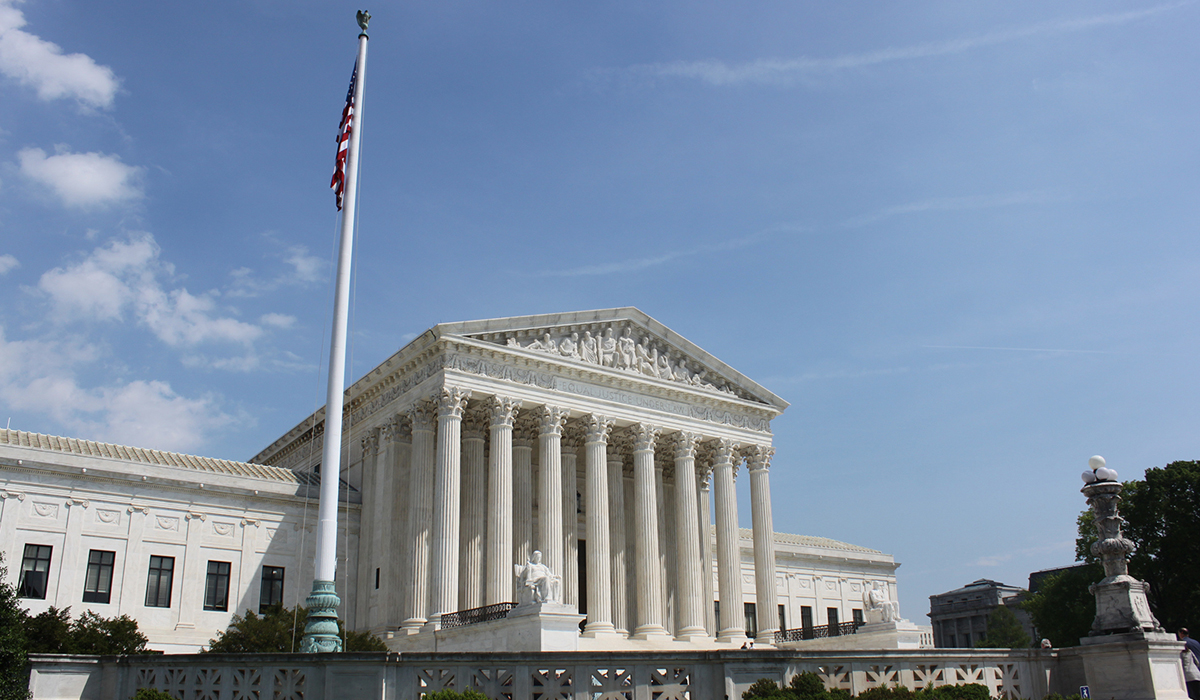 Appeals to tradition have become something of a lingua franca on the Supreme Court of the United States in recent years. The current Court’s high-profile use of history and tradition to shape substantive constitutional law in areas like abortion rights, the freedom of speech, and the right to keep and bear arms is well known and widely studied. But the Court’s reliance on traditional conceptions of adjudication in defining the scope of judicial power generally has received less attention. This relative inattention affects the development of doctrine not only at the Supreme Court of the United States, but also in inferior federal courts and state courts.
Appeals to tradition have become something of a lingua franca on the Supreme Court of the United States in recent years. The current Court’s high-profile use of history and tradition to shape substantive constitutional law in areas like abortion rights, the freedom of speech, and the right to keep and bear arms is well known and widely studied. But the Court’s reliance on traditional conceptions of adjudication in defining the scope of judicial power generally has received less attention. This relative inattention affects the development of doctrine not only at the Supreme Court of the United States, but also in inferior federal courts and state courts.
In recent years, Justice Thomas has argued for reconsidering facial challenge doctrine, overbreadth doctrine, third-party standing doctrine, associational standing doctrine, and statutory severability doctrine. These doctrines have also played an important role in the resolution of cases involving the First Amendment and the separation of powers, two areas in which the Roberts Court has been relatively active in substantive doctrinal development. Disagreements among other Justices over standing doctrine and the requirements of traditional remedial doctrine have also emerged. Judicial reliance on traditional understandings of judicial power has led to a variety of outcomes in the lower courts on matters such as ArticleIII standing, severability, and the propriety of preliminary injunctive relief.
The editors of the Catholic University Law Review will bring together scholars, jurists, and practitioners in Washington, DC for our Spring Symposium on March 28, 2025 to explore how traditional conceptions of judicial power relate to the judicial capacity to facilitate, moderate, prevent, or otherwise influence doctrinal development. We invite paper, panel, or presentation proposals that address doctrines such as standing, the distinction between facial and as-applied challenges, statutory severability, and the availability and scope of judicial remedies. Proposals may address these areas on their own or may address the relationships among these and similar doctrines in defining the scope of judicial power. Please submit a titled, approximately 500-word abstract of paper, panel, or presentation proposals by September 8, 2024 (extended to September 17, 2024). Please email your proposal to cua-lawreview@cua.edu, with the subject line “Spring 2025 Symposium.”
The Editors of the Catholic University Law Review, Vol. 74
The Catholic University of America Columbus School of Law
Cases Cited
Space Expl. Techs. Corp. v. NLRB, No. W-24-CV-00203-ADA, 2024 WL 3512082 (W.D. Tex. July 23, 2024)
Delaware State Sportsmen’s Ass’n, Inc. v. Delaware Dep’t of Safety & Homeland Sec., No. 23-1633, 2024 U.S. App. LEXIS 17214, ___ F.4th ___ (3d Cir. July 15, 2024)
Moody v. NetChoice LLC, 603 U.S. ___, 144 S. Ct. 2383 (2024)
FDA v. All. for Hippocratic Medicine, 602 U.S. 367 (2024)
Off. of United States Tr. v. John Q. Hammons Fall 2006, LLC, 602 U.S. ___, 144 S. Ct. 1588 (2024)
Barclift v. Keystone Credit Servs., LLC, 93 F.4th 136 (3d Cir. 2024)
United States v. Texas, 599 U.S. 670 (2023)
United States v. Hansen, 599 U.S. 762 (2023)
Hunstein v. Preferred Collection & Mgmt. Servs., Inc. 48 F.4th 1236 (11th Cir. 2022)
Pierre v. Midland Credit Mgmt., Inc., 29 F.4th 934 (7th Cir. 2022)
TransUnion LLC v. Ramirez, 594 U.S. 413 (2021)
United States v. Arthrex, Inc., 594 U.S. 1 (2021)
Franklin v. Navient, 534 F.Supp.3d 341 (D. Del. 2021)
Barr v. Am. Ass’n of Pol. Consultants, 140 S.Ct. 2335 (2020)
Seila Law LLC v. Consumer Fin. Prot. Bureau, 591 U.S. 197 (2020)
June Medical Services LLC v. Russo, 591 U.S. 299 (2020)
